BCBC Autumn/Winter Newsletter - Conference Preview
Message from the BCBC Chairman, Laurence Loxam
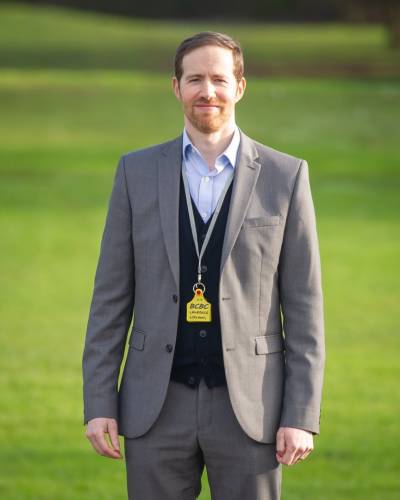
It gives me great pleasure to welcome you to the 2020 British Cattle Breeders’ Club Conference (BCBC). Since its inception over 70 years ago, the BCBC conference has become a unique event, renowned for its mix of practical, high quality speakers and it’s drive for innovation.
With the future of cattle breeding at its heart, the BCBC conference links a wide spectrum of farmers, scientists, students and industry influencers. The conference provides a fantastic forum in which to kick off the New Year, challenging ideas, introducing new science and technologies and providing the opportunity to meet people, stimulate thought, debate and discussion. The conference itself is a focal point of the year for the club where we embark on finding answers and solutions in today’s fast moving environment. In a world with a rapidly growing population that increasingly demands ‘more for less’, how can we ensure that an overriding need for quantity does not detract from the quality of the food we produce?
Succession and sustainability are two key messages I would like to address during the 2020 conference. Both topics are close to my heart as we embark on 2020, the start of a new decade where we are going to see huge changes around the world and especially in the agricultural industry. Therefore, I am thrilled to welcome speakers such as Dr Jude Capper and Martin Thatcher to name just two. We are so fortunate to have such a great line-up so I am excited to hear each and every paper.
Some of our challenges transitioning into 2020 are; how do we combat the rise of veganism and the rapidly changing environment, especially in the realms of global warming? Recently, we have heard the message that cattle are causing more methane gases than ever before and that this could be contributing to global warming; what can we do to prove this hypothesis wrong or is it correct and in fact we may need to adapt with the trends of the times?
We have seen over many years how cattle breeding has greatly benefitted from the dynamic integration of science, new technologies, and innovation. In this ‘new era’, I have no doubt that science and innovation will be even more important for farmers now, and for future generations. New thinking and strengthening the ability to innovate, will provide the advances and improvements that will increase efficiencies and produce populations of animals that can respond to the demands of a changing market place; we have to be more effective.
We are, of course, deeply indebted to all our sponsors, without whom we would not be able to run a conference of this stature.
Finally, to be the Chairman of the 2020 Conference is truly a great honour and I feel humbled to have found myself in this important position. It is very much my hope that you enjoy the programme, speakers and the chance to network with other attendees, leaving the 2020 BCBC conference informed, full of ideas, and with the energy and vision to embrace practical innovation and add value to every level of our great beef and dairy industries. I look forward to seeing you there.
The programme for the 2020 conference has been announced, here is a snapshot preview of some of our keynote speakers
Roddy McLean Director of Agriculture, Natwest - ‘Support of the Sector – The Challenges and Opportunities’
Opening the conference will be Roddy McLean, Director of Agriculture, NatWest, looking at some of the key challenges and opportunities facing the sector and how we support the next generation.
Roddy joined NatWest in November 2004 after working for SAC as an Agricultural Consultant for 21 years. His responsibilities include supporting the Bank’s Relationship Managers, keeping them informed on current farming issues, providing advice on more complex agricultural lending propositions and helping shape the Bank’s policy towards agriculture.
Dr Jude Capper Livestock Sustainability Consultant - ‘Going green - How do we communicate our industry’s environmental advantages?’
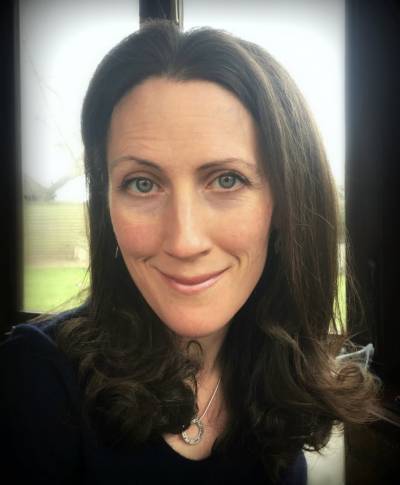
Dr Jude Capper will speak about cattle’s role in providing nutrient-rich foods on land unsuitable for other types of cropping. She will outline the amazing environmental progress made by the beef and dairy industries in recent years and how this can be communicated to consumers and wider society.
Jude Capper undertook her BSc (Agriculture with Animal Science) and PhD (Ruminant Nutrition and Behaviour) at Harper Adams University College, followed by post-doctoral research at Cornell University and a faculty position at Washington State University.
Jude currently works as an independent livestock sustainability consultant and her research focuses on modelling the sustainability of livestock production systems, specifically dairy and beef, including quantifying changes made by improving productivity or adopting differing management practices. She has an active social media presence and spends a considerable amount of time de-bunking some of the more commonly heard myths relating to livestock production. Due to these efforts, she was awarded “Dairy Industry Woman of the Year 2017.”
Sophie Throup Senior Agriculture Manager, Wm Morrison plc - ‘Beef into the future: customer focus and a retail perspective’
With customers increasingly interested in issues and wanting insight into the food they eat and the choices they make, what can beef producers think about when planning for the future? As Agriculture Manager for the UK’s only integrated retailer, Sophie Throup will give an overview on customer perspectives at Morrisons and how these might inform the beef business.
Sophie started her career on the ASDA graduate training programme, moving into corporate affairs and looking after farming, product and store themes, after a year in-store as a produce manager. She had a period at home on the family farm when her children were born, before joining Bishopton Veterinary Group in 2009 as their marketing manager. Whilst there she set up the FarmSkills training programme with XL Vets and worked with veterinary colleagues setting up RAFT Solutions Ltd, delivering vet and farmer generated livestock research and training projects for the private and public sectors.
Sophie also helped set up the government funded Agritech centre CIEL (Centre of Innovation Excellence in Livestock) for whom she is still non-executive director. Sophie joined Morrisons in November in 2017 as Agriculture Manager.
Prof. Bart Lardner, University of Saskatchewan - ‘Developmental programming and alternative heifer development’
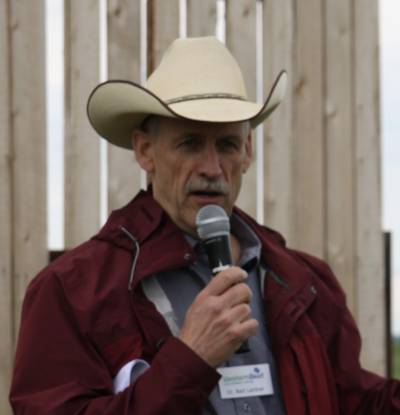
Prof. Lardner is a Professor in the Department of Animal and Poultry Science at the University of Saskatchewan, where he supervises undergraduate and graduate students and teaches courses in forages and beef cattle nutrition. His expertise lies in pasture and water management in cow-calf systems, summer and winter grazing systems, grazing ruminant nutrition, beef cattle reproductive efficiency, supplementation and heifer development, and applied genomics.
His research program works closely with producers to ensure applicability of results back to industry. Professor Lardner will explore the effects of maternal nutrition during gestation on progeny performance during his talk at the BCBC 2020 Conference. Another focus will be alternative heifer development programs, where the goal is to not grow too fast in confinement, but create functional cows required to perform in a similar environment.
Prof. Mick Watson, Bioinformatician and Genome Scientist - ‘Greenhouse gas emissions from farmed livestock – the role of the microbiome’

Professor Mick Watson, a bioinformatician and genome scientist from The Roslin Institute, will open dairy day by putting the facts on greenhouse gas emissions from ruminants into scientifically correct context. He will discuss the role of the microbiome and other factors and will discuss how agriculture can present its case with facts. His presentation will be followed by a discussion on the facts and put forward the arguments for the role of ruminants in maintaining biodiversity and their contribution to the carbon cycle.
David and Maggie Kelly, Farmer, Kirkby Lonsdale - ‘Limousin to Hereford, change for changes sake’
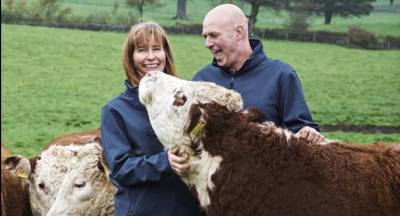
Making the move from Limousin to Hereford will be the topic of speakers David and Maggie Kelly, who farm 365 ha of permanent pasture in the Lune Valley in Cumbria. The family calve 250 pedigree Hereford cows a year with followers and 15 pedigree Limousins. On a separate unit 250 Hereford x calves are being reared for the Co-op.
The couple will focus on reasons for moving from continental cattle to Herefords, the benefits of stocking cattle hard, using EBVs to select for easy calving, short gestation and good growth to produce the cattle that the market requires.
Dr Michelle Judge Geneticist, Teagasc - ‘Breeding for superior beef meat eating quality’
Major advancements in meat eating quality have been made in recent years through processes within the farm gate as well as in the abattoir, including animal handling, slow chilling, hip hanging and dry aging process. Despite the extremely controlled conditions in abattoirs, large variability in meat quality still persists and genetics undoubtably contribute to this. Dr Judge will talk about how to use breeding as a tool for superior meat quality.
Dr Judge graduated from University College Dublin in 2013 with an honours degree in Animal Science before completing a PhD in genomics with Cork Institute of Technology and Teagasc in 2017. She is currently a geneticist with Teagasc in collaboration with Meat Technology Ireland, working specifically on genetic evaluations for both meat quality and detailed meat cut yields.
Werner Brand Geneticist/Programmer at SRUC - ‘Deep learning and its application in livestock industry’
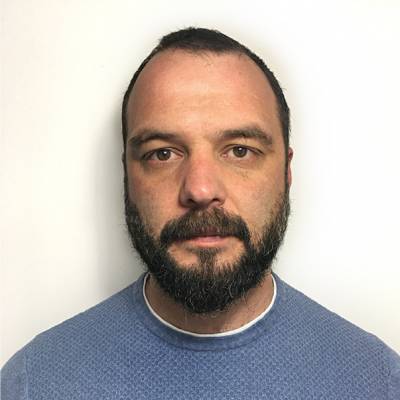
Deep learning is a modern tool used to build powerful predictive equations from a wide range of data sources by creating artificial neural networks to simulate an animal brain. Werner Brand, Geneticist and Programmer at SRUC will explain how EGENES and SRUC have been successful in training deep learning models for application in the livestock industry. These include predicting pregnancy and TB status in dairy cows and dairy goat udder classification from digital images. This talk will explore and showcase the application of deep learning in agriculture and livestock farming.
Neil Eastham, BVSc DBR NSch MRCVS Bishopton Veterinary Group & RAFT Solutions - ‘Future-proofing your herd through the use of genomics’
Neil recently completed a Nuffield scholarship exploring how UK dairy farmers can benefit from the use of genomics. Over the course of his study Neil learnt how producers across the world are realising a return on their investment in female genomic testing by changing the way they make selection and breeding decisions. As well as explaining how application of the lessons learnt make genomic testing a useful management tool, Neil will explore the role the vet can play and review future developments within the field of genomics.
Neil grew up on a Lancashire dairy farm where his family continue to milk 340 pedigree Holsteins cows. He studied at the University of Liverpool for an undergraduate degree in Veterinary Science and after graduating in 2007 joined Bishopton Veterinary Group in Ripon, North Yorkshire as a farm animal vet. He returned to academia, again at Liverpool University, completing his Diploma in Bovine Reproduction in 2014 and in January 2017 he became a partner in the practice.
Prof. Roel Veerkamp, Numerical Genetics & head of department, Wageningen University - ‘Multi-breed genomic prediction’
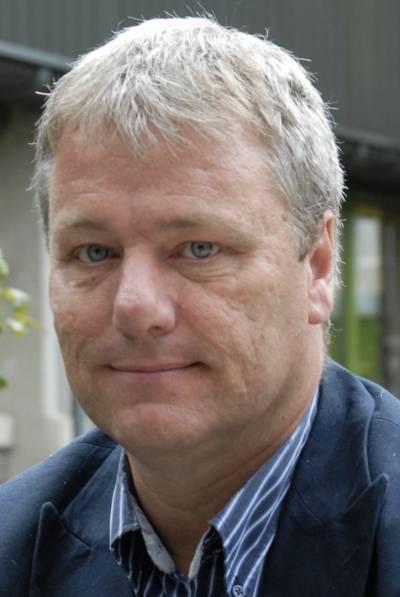
Professor Roel Veerkamp will be speaking on multi-breed predictions at the 2020 BCBC Conference. Since the size of the reference population is crucial for the accuracy of genomic prediction, it would be very nice to be able to perform multi-breed genomic prediction. Especially for numerical smaller breeds, or when phenotyping is very costly. In practice, however, multi-breed prediction appeared not very accurate when simply combining reference populations. Today we can define criteria and predict scenarios where it might be beneficial to combine references populations across breeds.
Rob Hitch, Partner Dodd & Co Accountants - ‘Delivering succession for farming businesses’

Rob Hitch from Dodd & Co Accountants will consider the points that help businesses continue to prosper through the succession process as well as the options available to facilitate gradual transfer of businesses and underlying assets at the BCBC 2020 Conference. He will cover what makes successors want to take businesses on and what stands in their way and if policy choices aid or hamper sustainable businesses.
Rob joined Dodd & Co in 1997 after six years in the consultancy industry. He specialises in farming businesses and associated industries. Rob is involved with developing tax mitigation strategies for farmers and developing structures that comply with EU and UK subsidy requirements, dealing with partnerships, companies and advising joint venture businesses particularly in the dairy sector.
After spending nearly 30 years working with farming businesses, Rob has been involved with many successful transitions from one generation to the next and helped businesses manage their succession plans.
Patrick Morris-Eyton, Farmer, Cumbria - ‘Improving sustainability for the future’
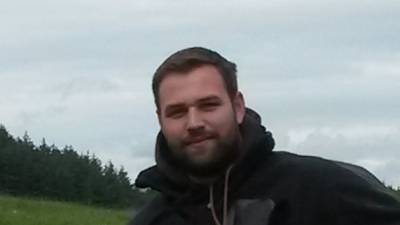
Patrick will talk about his aims for the new greenfield dairy site he is building on the farm and his aim of producing milk to the highest standards while improving the sustainability of the business. He will talk about how the family managed the topic of succession and how the process has developed.
After a period milking cows in New Zealand and managing the family’s flock (while breeding his own Swaledale flock) Patrick took part in Tesco’s Future Farming Foundation in 2015/16. He then became more involved in the family’s dairy business and became a partner, getting more involved with the genetics side of the herd. He subsequently implemented genomic testing on all heifer calves.
In the past two years Patrick underwent the Arla Next programme and is now the District Chairman for Arla. He has also participated in the Myerscough Young Farmers Leadership Academy. This was an experience he highly recommends due to the knowledge it gave him of managing a team; particularly helpful during the building of the greenfield dairy.
Neale Sadler, Bridge Farm, Wem - ‘The Conversion to and production of a2 milk’
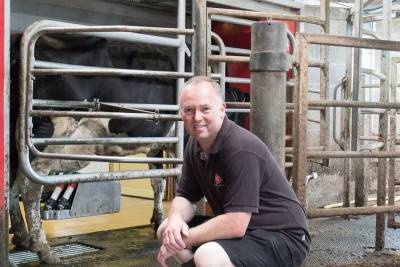
Neale Sadler milks 75 cows through a Lely robot. The herd converted to a2 milk production six years ago and is now looking to expand cow numbers, with a new building to house a second robot. Neale will be drawing on the key messages from last summer’s BCBC Dairy Farm Walk and talk about the conversion to producing a2 milk, how he is breeding a herd fit for the future and how he manages succession and sustainability on his farm.
Practical Workshops for beef and dairy farmers at the 2020 Conference
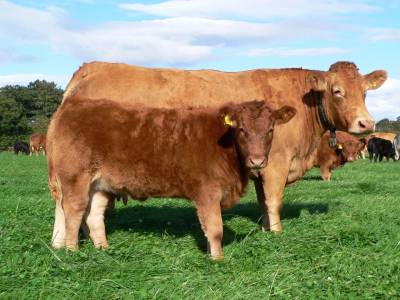
The conference will once again host a beef and dairy workshop with AHDB, both looking at breeding strategies, giving farmers the chance to interact in practical sessions looking at breeding goals and putting their findings into practice.
Planning beef breeding strategies
Breeding lies at the foundation of any beef production system. While herd breeding decisions are just one element of cattle management, selecting superior parents for breeding will lead to cumulative and permanent gains in herd productivity, profitability and efficiency.
There is no single definition of a good breeding plan. Instead, breeding plans need to be devised to meet the specific requirements of a herd and the target market.
The British Cattle Breeders Club and AHDB Beef and Lamb invite farmers to join us for this practical workshop to take the first steps in developing a breeding plan for their suckler herd. The workshop will cover;
- Where do you want to go? Your farm; Your breeding
- Where Estimated Breeding Values (EBVs) come from and the data behind them
- How EBVs translate to on-farm performance
- What generates profit in the beef supply chain and how breeding can influence that
- Practical use of EBVs when selecting a sire
- Fit for purpose bulls – health & structural soundness
Dairy Breeding - Shape your future
Breeding should be part of the future planning you carry out for your business; whether that is expansion, change of direction or leaving a legacy. Join AHDB Dairy’s Marco Winters and Fern Pearston to learn about the set of tools available from AHDB designed to help you evaluate your herd’s genetic strengths and weaknesses, inform your breeding decisions and evaluate those decisions once they have been made. Delegates can put these learnings into practice with a break out session during the workshop.